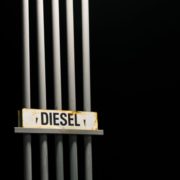Why Today’s Diesel Engines Are More Efficient Than Ever
Diesel engines have always been the most fuel-efficient choice of engine, as diesel is one of the most energy-dense energy sources commonly available. It contains more usable power than regular gasoline, thus delivering better fuel economy. Despite this, fleets have worked hard to increase their efficiency even further, and the results are nothing short of amazing.
According to an annual report released this year by the North American Council for Freight Efficiency, the average fuel economy of fleets participating in the study increased by 15% since 2009. They went from 6.27 miles per gallon in 2009 to 7.27 mpg in 2018, and on a long haul, that’s a lot of savings.
Today’s diesel trucks are more efficient than they’ve ever been because, in recent years, diesel engines have changed in small but very important ways!
Advances In Designs For Deisel Engines
The diesel engine became more efficient through incremental change. Since the ‘90s, engineering advances have increased air handling efficiencies in semi-truck engines through upgraded turbocharger aerodynamics. They also increased the compression ratio for combustion optimization, reducing losses due to changes such as decreased water pump speed. Over time, engineering also improved diesel engines with adjustments like higher fuel pressure, direct injection, split injection, and smaller injector holes.
such as decreased water pump speed. Over time, engineering also improved diesel engines with adjustments like higher fuel pressure, direct injection, split injection, and smaller injector holes.
The addition of advanced electronic controls has also made engines more efficient in small ways that add up over time. Smarter transmissions are making it easier to drive efficiently, and enhanced engine software relies on GPS technology to prepare the truck for the route. It makes it easier for the truck to adjust for steep grades, highway merging, and other geography-based changes on the route ahead. They can also adjust the engine depending on the size of the load.
These amazing advances have made truck transportation more fuel-efficient than ever before, using an already efficient fuel source. But the diesel engines are just one side of the coin; a lot of advances are due to the design of the truck, too!
The Design
Improvements in the design of trucks have also had a big impact on diesel efficiency. The use of lightweight truck bodies and components have reduced weight without reducing the function of the vehicle. The trucks have become more functional, as they can drive further on less fuel.
One of the easier ways to increase fuel efficiency is making the trucks more aerodynamic. Changes that improve stability and cut wind resistance like rounded edges, lower noses, and smaller gaps to smooth the airflow are becoming more commonplace.
A lot has gone into designing semi-trucks to improve efficiency, from electronic engines to improved aerodynamics to onboard monitoring. As fuel efficiency rises though, large economies like California are pushing for tougher emissions standards. These places can have a major impact on the production of truck engines, and other technologies like diesel particulate filters are commonplace because of their standards and influence.











